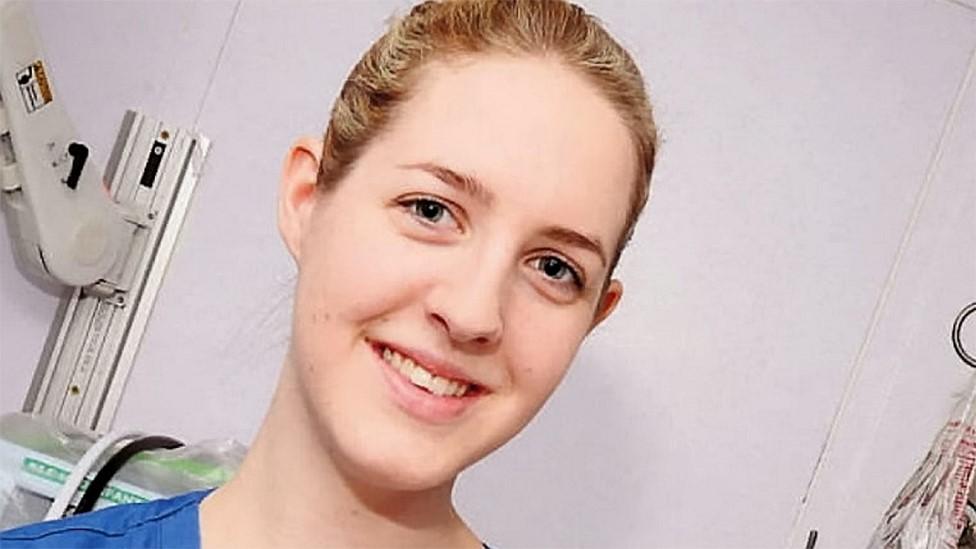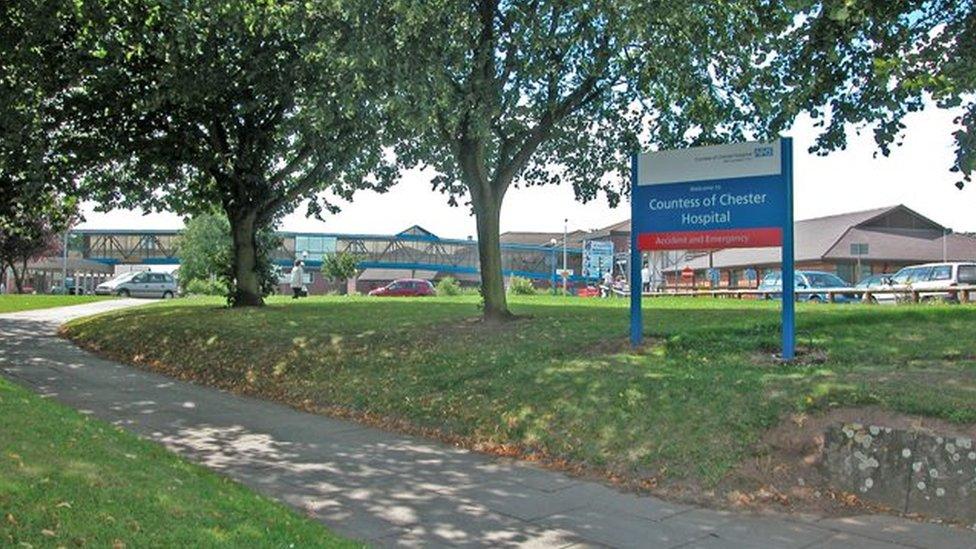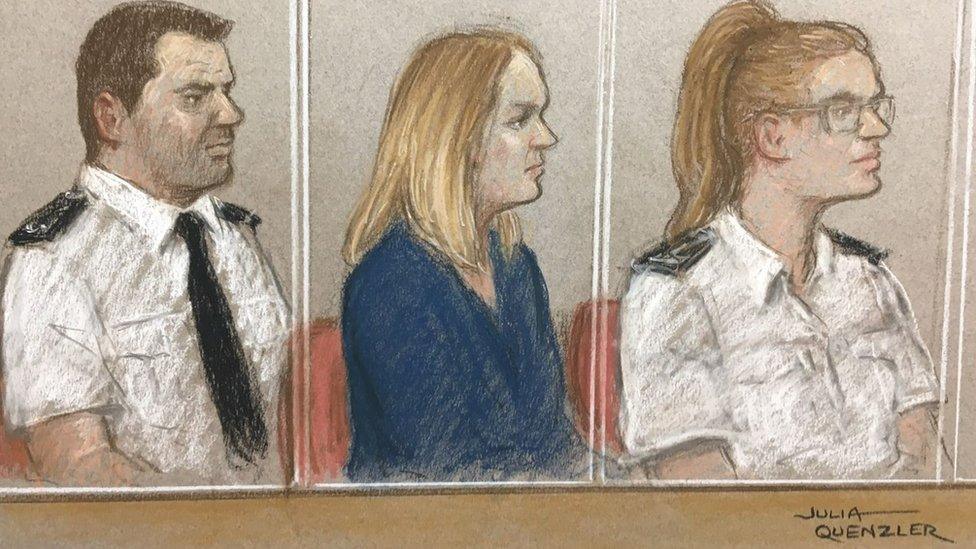Nurse Lucy Letby poisoned babies with insulin, trial told
- Published

Ms Letby, of Hereford, was working at the Countess of Chester Hospital's neonatal unit when the deaths happened
A "poisoner was at work" at a hospital where there was a "significant rise" in the number of healthy babies dying, a court has heard.
Lucy Letby has been accused of murdering five baby boys and two girls, and attempting to murder 10 other babies at Countess of Chester hospital.
Nick Johnson KC, prosecuting, said she was a "constant malevolent presence" in the hospital's neonatal unit.
Ms Letby, 32, of Hereford, denies 22 charges at Manchester Crown Court.
Jurors heard Ms Letby is alleged to have tried to kill one child three times, while another died as a result of being injected with air.
Family members of some of the babies concerned in the case were among those present in the court as Mr Johnson opened the prosecution.
He said the Chester institution was a "busy general hospital like so many others in the UK".
However, he said that "unlike many other hospitals, within the neonatal unit at the Countess of Chester Hospital, a poisoner was at work".
"Prior to January 2015, the statistics for the mortality of babies in the neo-natal unit at the Countess of Chester were comparable to other like units," he said.
"However, over the next 18 months or so, there was a significant rise in the number of babies who were dying and in the number of serious catastrophic collapses."

Lucy Letby appeared in the dock at Manchester Crown Court
He said the increases were noticed by hospital consultants, who were concerned that "babies who were dying had deteriorated unexpectedly".
Medics also noted that babies who had collapsed "did not respond to appropriate and timely resuscitation" and that others "collapsed dramatically, but then, equally dramatically, recovered".
"Having searched for a cause, which they were unable to find, the consultants noticed that the inexplicable collapses and deaths did have one common denominator," he said.
"The presence of one of the neonatal nurses and that nurse was Lucy Letby."
Mr Johnson told the court that as medics could not account for the collapses and deaths, police were called in and conducted a "painstaking review".
"That review suggests in the period between mid-2015 and the middle of 2016, somebody in the neonatal unit poisoned two children with insulin," he said.
"The prosecution say the only reasonable conclusion to be drawn from the evidence you will hear is that somebody poisoned these babies deliberately with insulin."
Among several cases detailed by the barrister, he told the jury that both babies were boys and both born as twins - but not to each other - and were poisoned within a few days of being born.
Mr Johnson said their blood sugar levels dropped to dangerous levels.
But the babies - identified only as Child F and Child L - survived due to the skill of medical staff who appreciated low blood sugar can have natural causes, he said.
"What the medical staff did not realise was that in both cases, was the result of someone poisoning them with insulin," he added.
The prosecutor said nobody would think somebody would be trying to kill babies in a neonatal unit.

Nick Johnson KC, prosecuting, said Lucy Letby was the "one common denominator" that linked the deaths and collapses
"There's a very restricted number of people who could have been the poisoner, because entry to a neonatal unit is closely restricted," he said.
"Lucy Letby was on duty when both were poisoned and we allege she was the poisoner," Mr Johnson said.
He said both of the twins had a baby brother, Child E and Child M, who were both also allegedly attacked by Ms Letby - one of which did not survive.
The court heard one of the means by which the Child E was killed and Child M was harmed, was by having air injected into the bloodstream - what the doctors call an air embolus.
He said all the deaths and collapses were "no accident" and were not "naturally-occurring tragedies".
Mr Johnson said sometimes babies were injected with air and on other occasions they were fed with insulin or too much milk.

Lucy Letby is alleged to have tried to kill the same baby three times
He told the court: "So varying means by which these babies were attacked, but the constant presence when they were fatally attacked or collapsed catastrophically was Lucy Letby."
Jurors were shown a chart showing nurses who were present on duty when the alleged criminal incidents were said to have taken place.
Pointing out, as examples, the first three alleged offences in time he said the chart showed the only person that was present on all three occasions was the defendant.
Mr Johnson said: "If you look at the table overall the picture is, we say, self-evidently obvious. It's a process of elimination.
"Many of the events in this case occurred on the night shifts.
"When upon Lucy Letby was moved on to day shifts, the collapses and deaths moved to the day shifts.
"They were all the work of the woman in the dock, who, we say, was the constant malevolent presence when things took a turn for the worse for these 17 children."
Mr Johnson alleged that in some cases, Ms Letby tried to kill the same baby more than once.
"Sometimes a baby that she succeeded in killing she did not manage to kill the first time she tried, or even the second time, and in one case even the third time."
The court heard how Ms Letby studied for her nursing degree at the University of Chester and had qualified a few years before the alleged events.
She worked throughout the period in consideration at the neonatal unit and was living in Chester at the time.
The jury has been told the trial may last up to six months.

Why not follow BBC North West on Facebook, external, Twitter, external and Instagram, external? You can also send story ideas to northwest.newsonline@bbc.co.uk, external